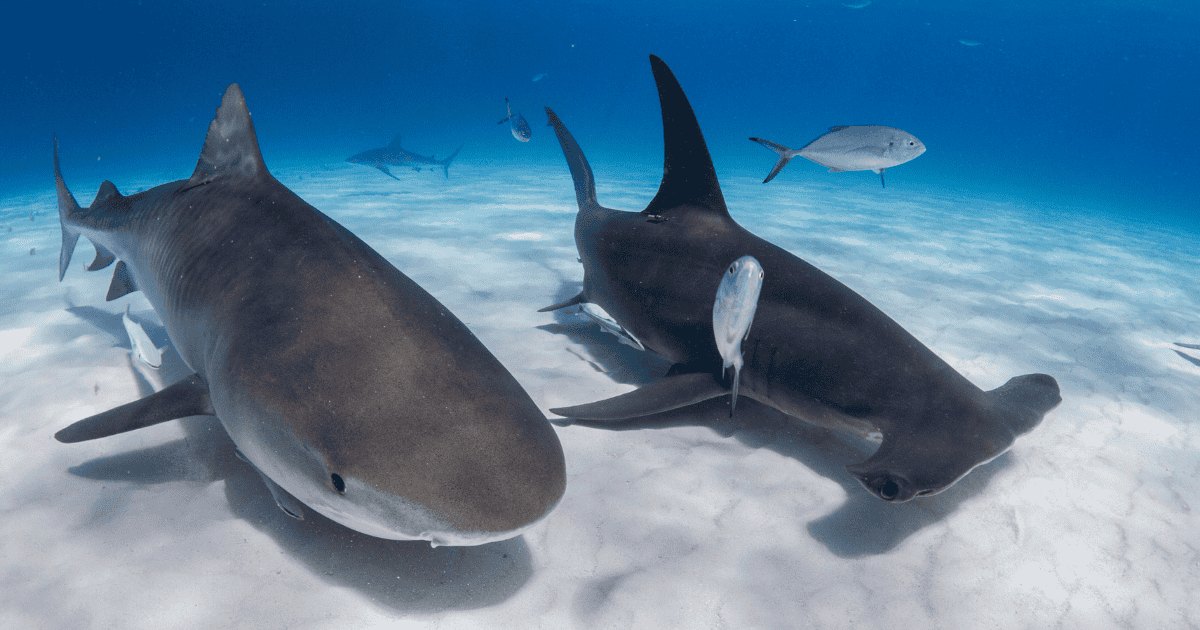
14 Groundbreaking 2025 Shark Discoveries
From newly discovered species to advanced genetic analyses and surprising behavior check out these 14 Groundbreaking 2025 Shark Discoveries

At Atlantic Shark Expeditions (ASE), every trip out to sea goes deeper than just the thrill of cage diving. Behind each expedition is a purpose: advancing shark science and conservation. We work in close collaboration with the Shark Research Foundation Inc. (SRF), a nonprofit research organization dedicated to shark conservation science.
The Shark Research Foundation Inc. is a registered not-for-profit organization dedicated to increasing scientific knowledge, improving public perception, and promoting the conservation of sharks through research and education.
SRF leads research to better understand how sharks—and the ecosystems they help regulate—are responding to growing human pressures like climate change, habitat degradation, and overfishing. Their key research priorities include:
One of SRF’s current projects focuses on supporting the recovery of great white sharks in Atlantic Canada in collaboration with ASE through fieldwork conducted on our expeditions. This includes boat-based surveys to gather baseline population data and satellite tagging to track shark movement, identify critical habitat, and evaluate threats from aquaculture, tidal power, and fisheries.
You can explore where SRF-tagged sharks travel using their interactive shark tracking platform.
Atlantic Shark Expeditions plays a key role as both a platform and partner for SRF. Here’s how:
ASE expeditions contribute to SRF’s scientific mission and collaborative research. With scientific guidance from SRF Executive Director and lead scientist Dr. Neil Hammerschlag, ASE marine biologists, crew, and guests collect photos for shark identification, document sightings, and contribute field observations to track behavior and biology. ASE’s vessel is a floating research station—and the trips make that possible by providing the operational platform for collaborative shark research and education.
We also welcome other scientific partners aboard, such as researchers from Dalhousie University, who study the health of local shark populations.
And this fall, Dr. Hammerschlag will be tagging free-swimming great white sharks using non-invasive techniques during ASE trips. “The tags are provided by SRF, and deployed collaboratively by SRF and ASE scientists, while access, timing, and opportunity are made possible through ASE operations and guest participation.
ASE is proud to amplify SRF’s work. Through onboard education, social media, and community outreach, we help inform the public, encourage responsible engagement with sharks, and inspire donations to support research and conservation.
Whether you’re cage diving for science off Nova Scotia or supporting research from home, your participation matters.
Together, we’re not just watching sharks—we’re helping protect them.

From newly discovered species to advanced genetic analyses and surprising behavior check out these 14 Groundbreaking 2025 Shark Discoveries

This Shark Week, take your fascination even deeper. While millions tune in to Discovery Channel for thrilling footage of the ocean’s top predators, we’re celebrating

Top Places to Stay near Yarmouth, Nova Scotia for Your Atlantic Shark Expeditions Trip Planning a once-in-a-lifetime great white experience with Atlantic Shark Expeditions? You’ve
📊 Cage Diving – Halifax

📊 Great White Expeditions

Exchange rates fluctuate daily. USD amounts shown are estimates. Check with your bank or card provider for the current rate. No additional international fees are charged by Atlantic Shark Expeditions. Early Bird and promotional pricing available for limited time only, there is no guarantee promotional pricing will be available at the time of booking.